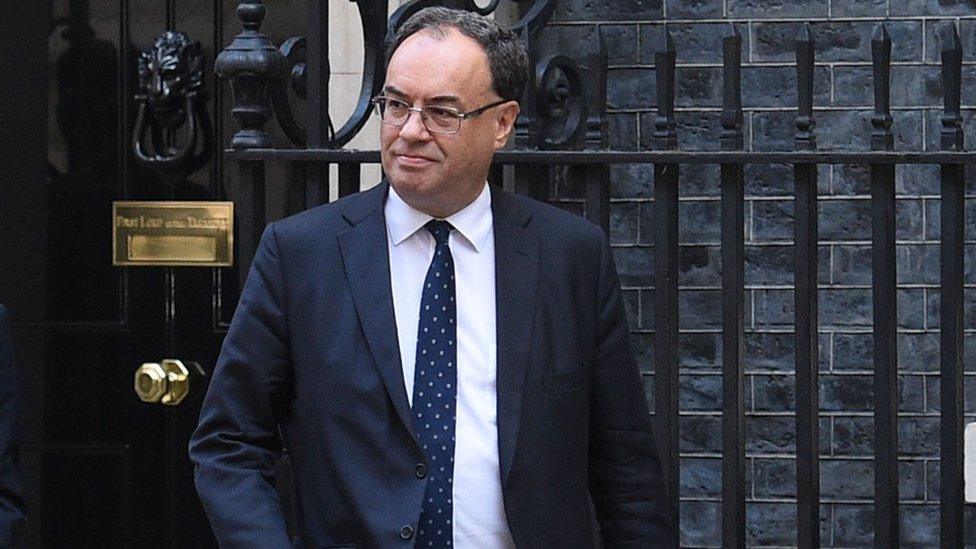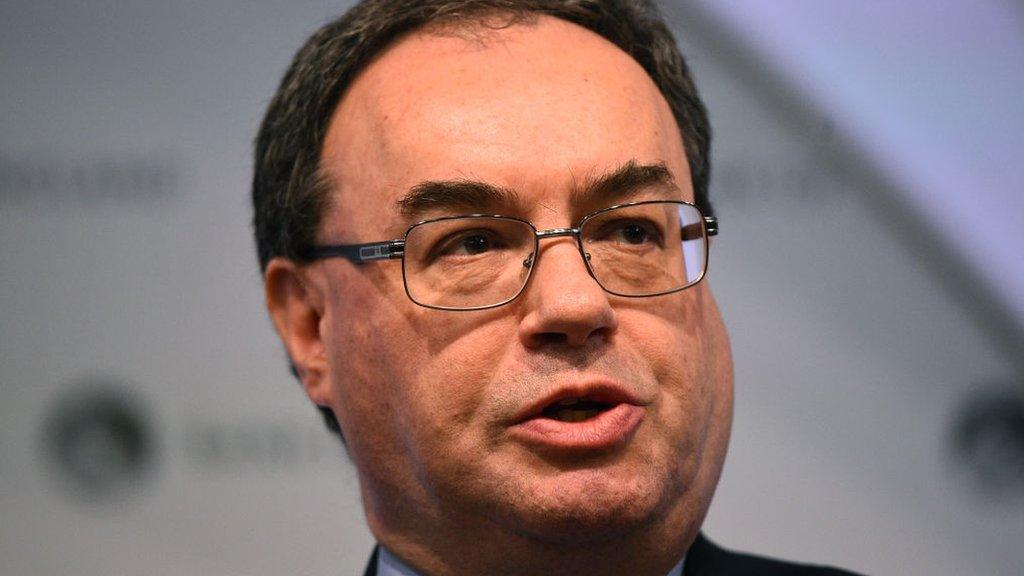Pressure mounts on Chancellor to guarantee 100% of loans to firms
- Published

Struggling firms could access money faster if the government guaranteed 100% of emergency loans, not just 80%, Andrew Bailey has said
The Governor of the Bank of England has told the BBC that an extension of government guarantees to lenders from 80% to 100% of the loans extended could speed up the delivery of financial assistance to cash strapped firms.
The banks, perhaps unsurprisingly, agree.
One major business lender said that a 100% guarantee against potential losses on loans would considerably accelerate the loan approval process.
Currently banks do not feel they can dispense with normal credit checks just because they may "only" lose 20% of the sum advanced.
The most recent figures available show that of a total business support package of £350 billion - one of the most substantial announced anywhere in the world - just over £1 billion had been advanced through the Coronavirus Business Interruption Loan Scheme (CBILS) scheme to date.
There have also been calls from both sides of the political divide to increase the level of government backing for the CBILS programme.
Former Conservative chancellor George Osborne and current shadow business secretary Ed Miliband have both voiced support for the move.
Mr Miliband said: "This is an important intervention by Andrew Bailey the Bank of England Governor. He is completely right. The CBILS scheme is not working. The UK still lags far behind other European countries in getting loans to struggling firms.
"We face a looming insolvency crisis if uptake is not improved dramatically. The Government must go further and urgently reform the scheme to guarantee 100% loans to small businesses."
Today's comments by the Bank of England governor - that a full guarantee could make the process "less complicated" - will heap additional pressure on the Chancellor to follow the example of other countries.
US lenders have approved more than 300 times as much lending as in the UK while even Swiss banks have approved 98,000 loans. The latest figure in the UK is just over 6,000.
Expanding the guarantee to 100% would mean the taxpayer would be taking all the risk that the loans were not repaid - an outcome that Ed Miliband has admitted creates a "moral hazard".
However, speaking to the BBC earlier this week, he said the "economic hazard" of letting thousands of firms to go bust was more important.
However, some finance industry sources say continual tweaks to the existing CBILS scheme would risk creating more confusion for banks which are already operationally stretched due to high levels of demand at a time when many of their own staff are working from home.
The BBC also understands proposals from the financial services industry are about to be submitted that would see support for smaller firms delivered via immediate and government guaranteed extensions of up to £25,000 to overdrafts on their business current accounts, the most basic and widespread product that businesses use.
- Published17 April 2020

